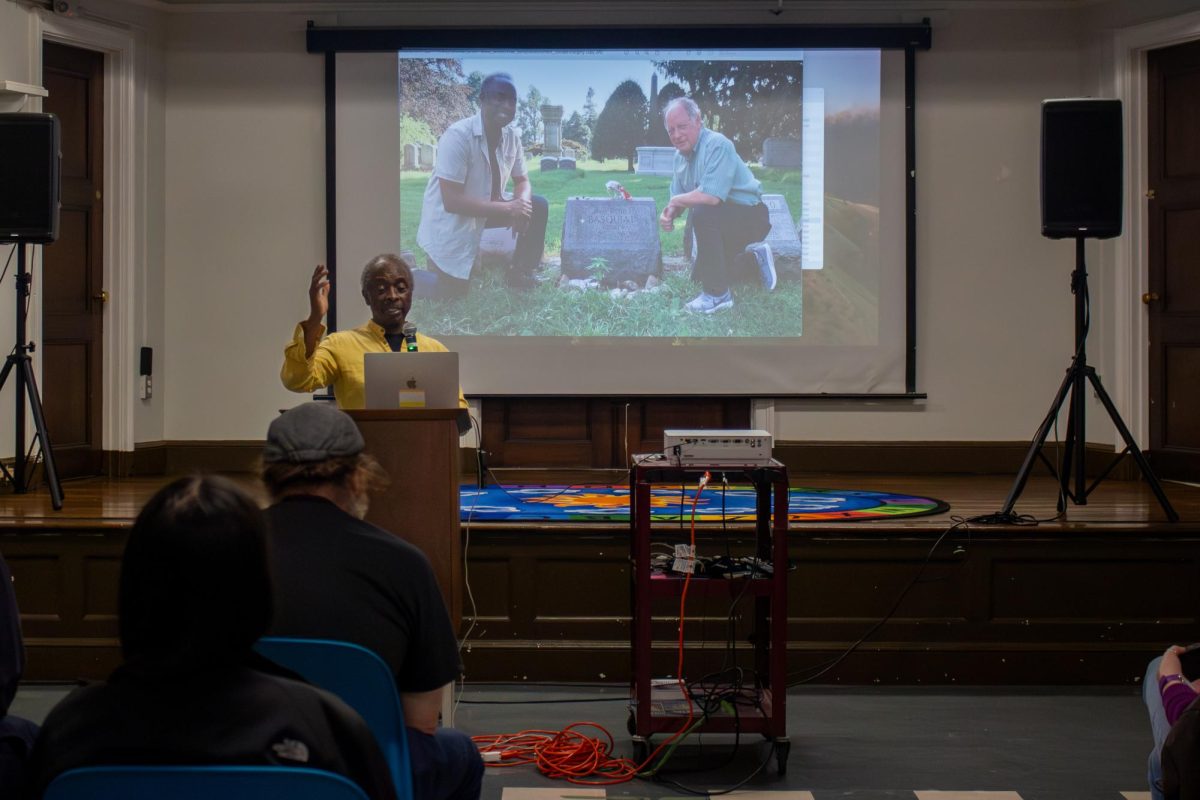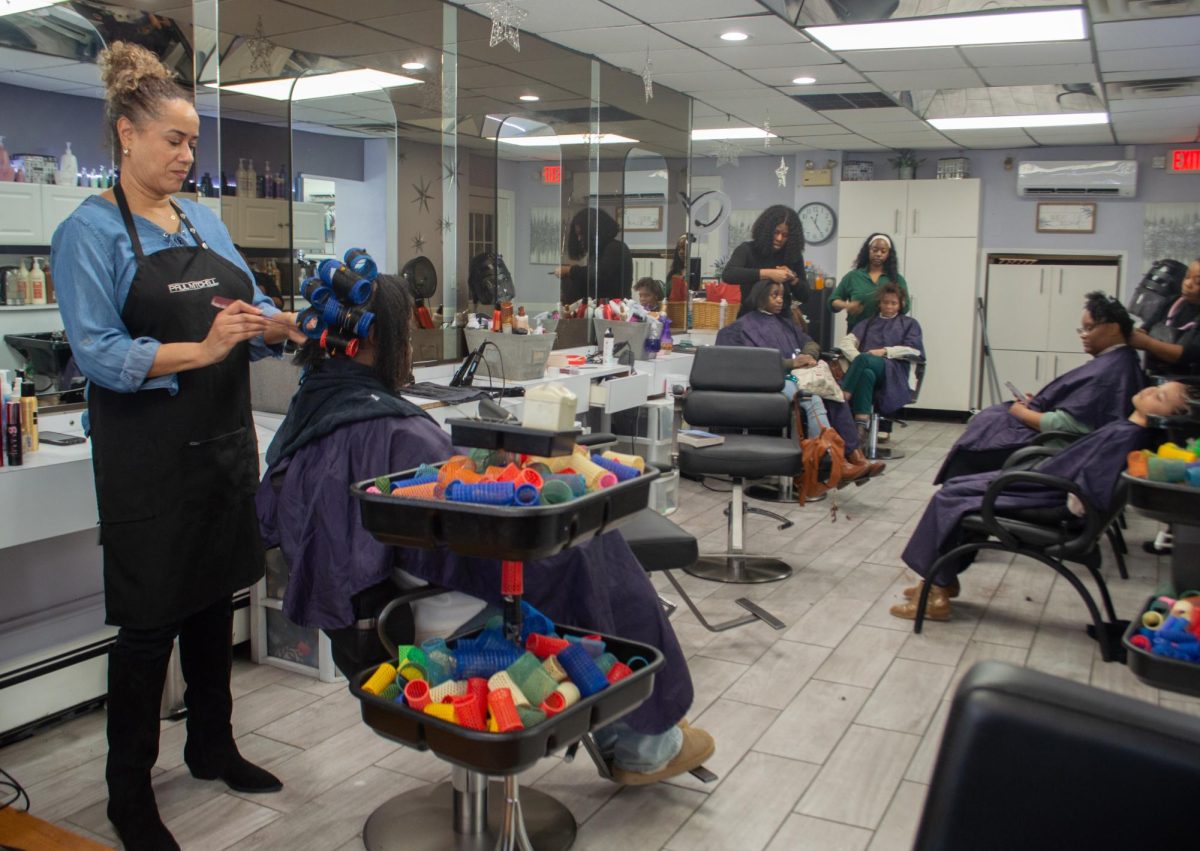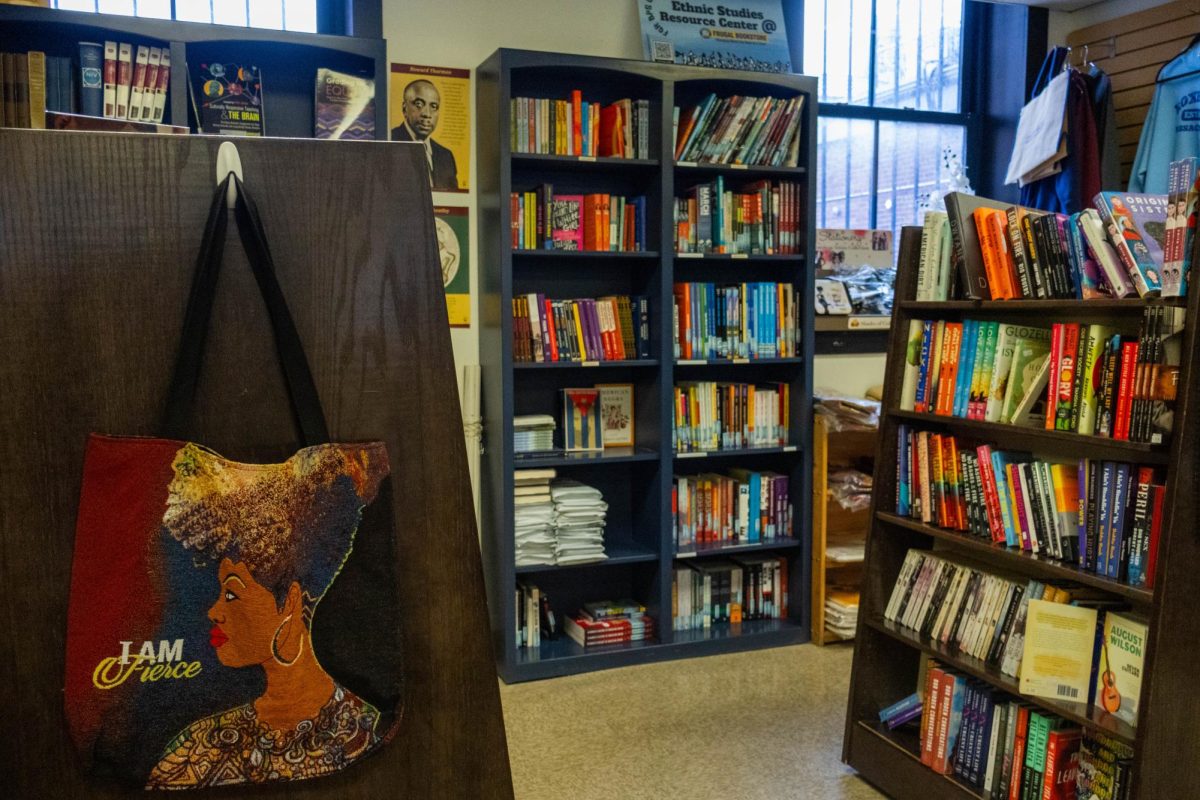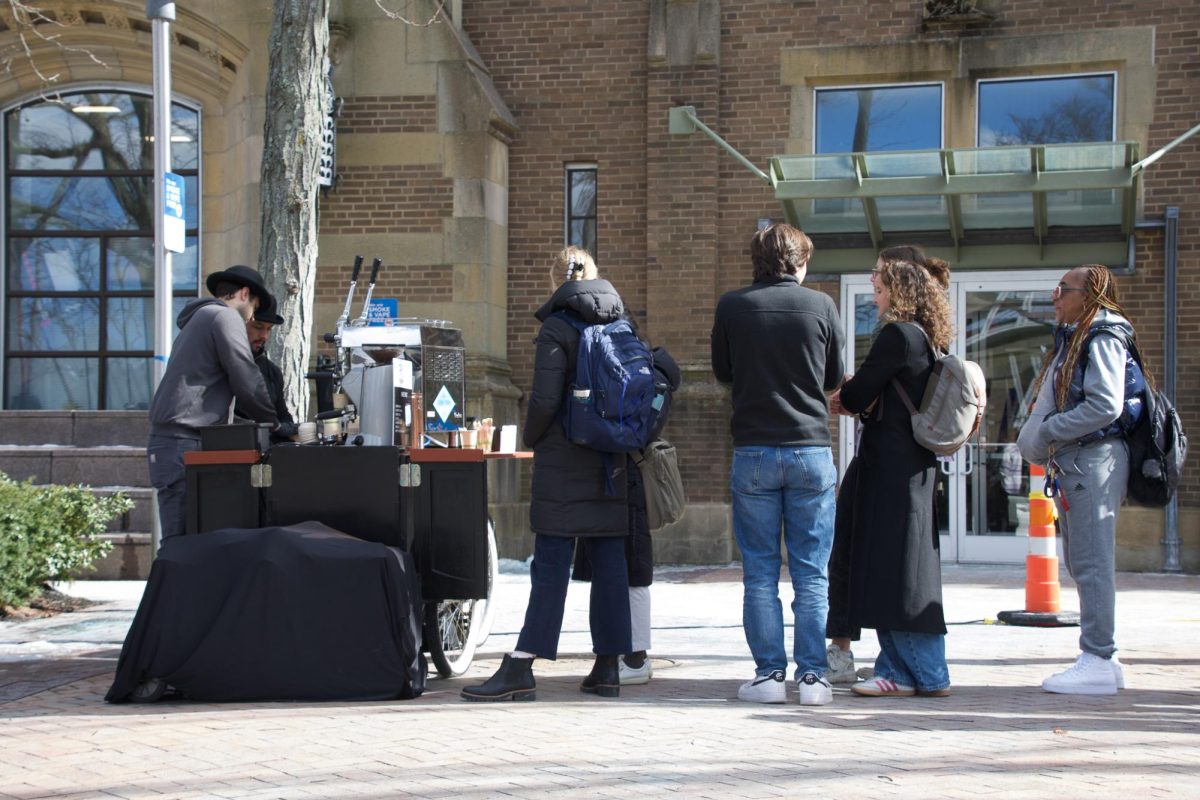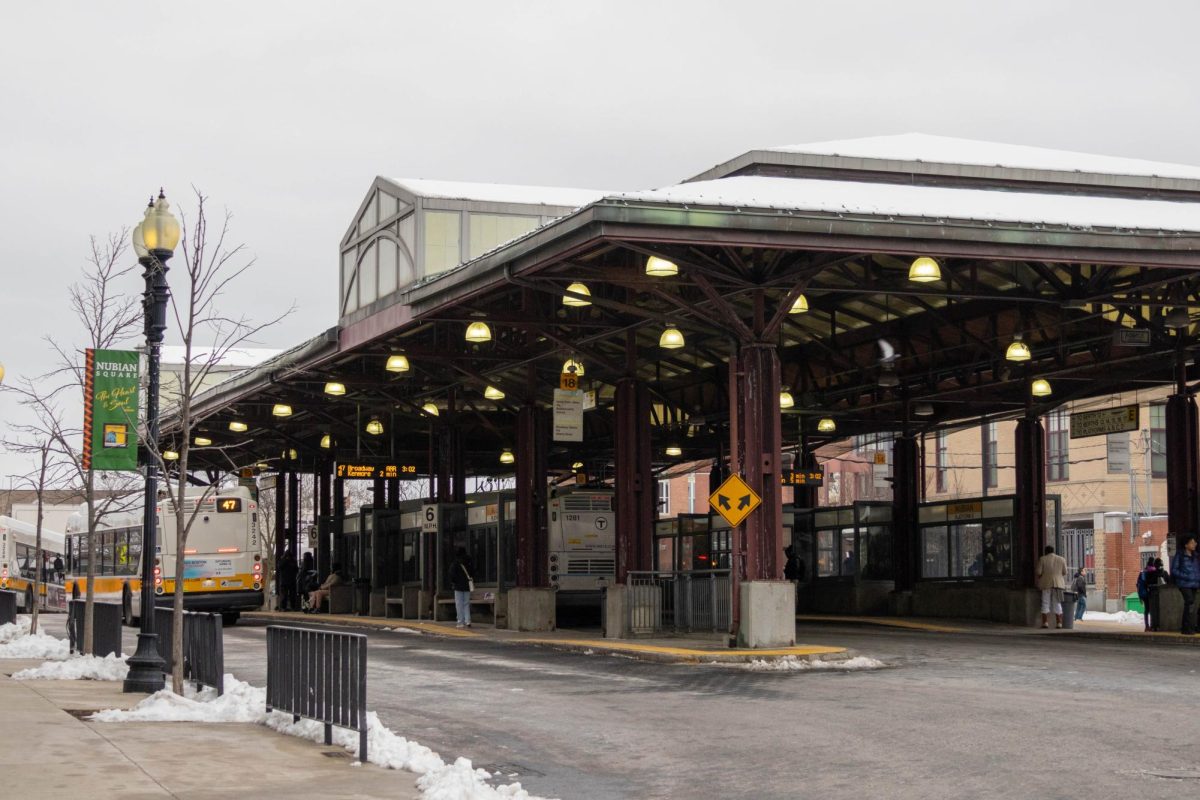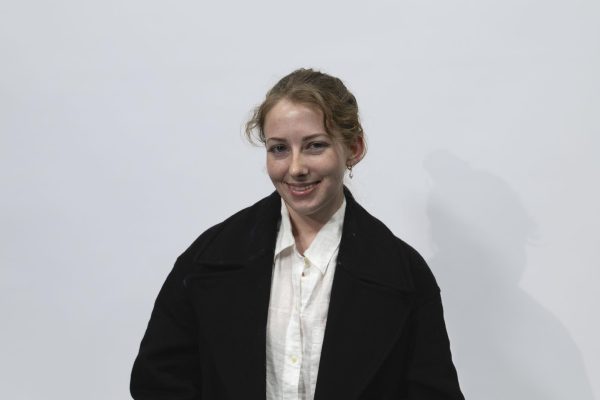At the Parker Hill Branch of the Boston Public Library Oct. 5, Roberto Mighty brought the dead to life.
Mighty, a multimedia artist and filmmaker, spoke to an audience of 20 about his upbeat docuseries “World’s Greatest Cemeteries,” currently airing its second season on PBS. The show follows Mighty on his travels to cemeteries in the United States and beyond, interviewing experts and exploring the lives of historical figures who lie within the graves.
In the past, cemeteries across the world were segregated by race and religion. But from Civil War General George Washington Custis Lee to biracial French sculptor Augustin-Alexandre Dumont and even renowned boxer Muhammad Ali, Mighty shows the true diversity of people who rest in these cemeteries.
“The stories are endless,” Mighty said.
Mighty’s past visits to Argentine, French and Japanese burial grounds showed him how many ways there are to honor the dead. “World’s Greatest Cemeteries” carefully commemorates every part of the cemetery.
“What we find in these cemeteries,” Mighty said, “are beautiful architecture, beautiful horticulture and beautiful stories.”
Many fans of the show and personal friends of Mighty sat in the audience, including Janet Lowenstein of Newton. Her self-described “weird fascination” with cemeteries, their architecture and the dead drew her to Mighty’s social circle.
Lowenstein said that different groups often used the same resting sites through time, giving a unique look into the past of the land and the populations who lived there.
“[Mighty’s work] is history,” she said, “and an opportunity to learn about other customs.”
Mighty’s first exposure to cemeteries was during his childhood. His parents would tell stories of having impromptu poetry recitals in a cemetery around their old college campus.
“Growing up, I didn’t have a bad feeling about cemeteries,” Mighty said.
Despite these early first impressions, Mighty saw cemeteries as eyesores interrupting the landscape. But after shooting a series of nighttime photos in Middlesex’s Mount Auburn Cemetery, he realized he had a passion for these macabre locations.
The artist continued his appreciation of cemeteries through interviews with the loved ones of people buried at Mount Auburn. His resulting series of 29 short films, sharing the past lives of everyday people, gave way to his present-day work.
Event attendee Robert MacEachern of Dorchester is a trustee at the Cedar Grove Cemetery. His cemetery on Beacon Hill once belonged to former enslaved women, who raised enough money to build a place for their dead to rest in. Now, he aims to create awareness for the 138 former enslaved women buried on the grounds in unmarked graves.
“[Mighty is] starting a conversation that hasn’t been started in a long time,” MacEachern said. Agreeing with the goals of Mighty’s work, he affirmed that the history of segregation and stigmas in cemeteries cannot be forgotten. “We have to recognize everyone, even marginalized groups.”
Mighty said he believes film is the only medium to properly share the stories of the dead, by capturing the deeper emotions of those left behind. Now, despite their haunting reputation, Mighty aims to show audiences the true nature of these resting places.
“Cemeteries serve that purpose of bringing people together,” Mighty said. “They give the living a place to remember the dead.”
Mighty said he knows that many assume each headstone and epitaph belongs to someone who lived a perfect life to an old age. But “World’s Greatest Cemeteries” shows the entire truth and gives a voice to memories that pushes past simple facts. Mighty’s show reminds viewers that, “not every grave is six feet deep.”
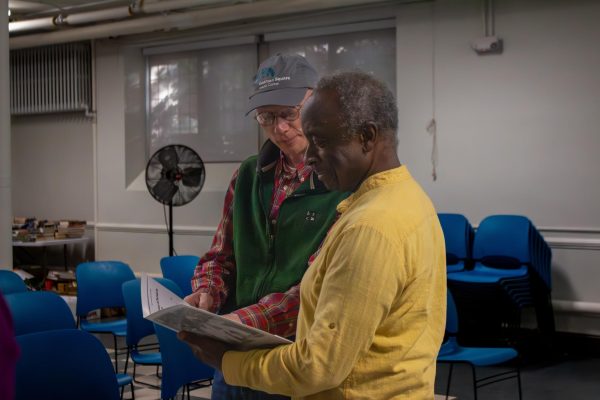
The Huntington News is dedicated to serving the Northeastern University community with original, professional reporting and creating an environment in which student journalists can learn from one another. Support an independent, free press at Northeastern University with your donation today.



